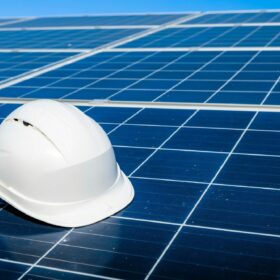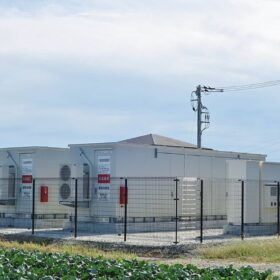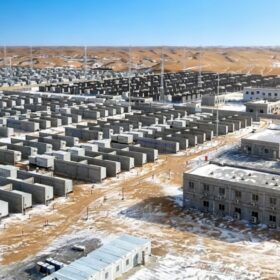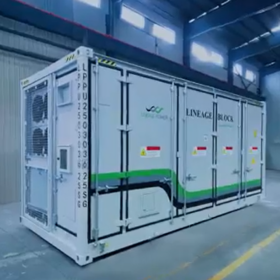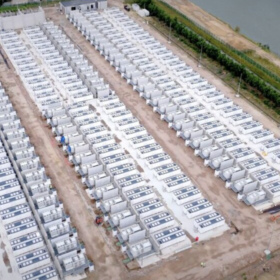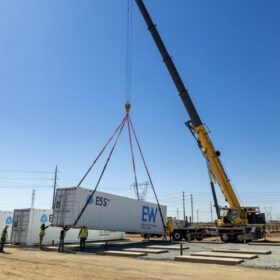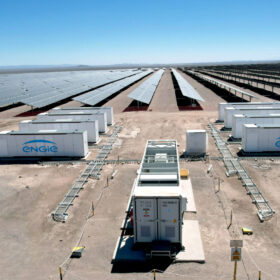Premier Energies buys 51% stake in EPC JV with BA Prerna Renewables
Indian solar manufacturer Premier Energies has completed the acquisition of 104,550 equity shares of HeliosAnthos Energies, securing 51% of the company’s paid-up equity share capital. HeliosAnthos Energies is a joint venture between Premier Energies and BA Prerna Renewables, formed to expand Premier’s presence in the engineering, procurement and construction (EPC) segment of renewable energy projects.
US energy storage shatters records with 58 GWh installed in 2025
The Solar Energy Industries Association (SEIA) and Benchmark Mineral Intelligence say US battery installations reached a record 57.6 GWh in 2025, up 30% year on year, as the industry enters what they describe as a new phase of sustained, high-volume deployment.
Vanadium flow and lithium-ion combine in world’s largest grid-forming hybrid storage plant in China
China brings online 300 MW/1,200 MWh grid-forming energy storage facility in Inner Mongolia, integrating lithium-ion and vanadium flow battery technologies.
Pace Digitek’s arm Lineage Power delivers 100th BESS container
Lineage Power, the energy storage arm of Pace Digitek Ltd, has delivered its 100th containerized battery energy storage system (BESS).
SolarPower Europe issues due diligence guide for PV-BESS
SolarPower Europe has released new technical due diligence guidelines for utility-scale solar-plus-storage projects, covering risk, engineering and lifecycle standards for co-located PV and battery systems.
Mexico mandates social impact reviews for BESS projects
New rules from Mexico’s Secretaría de Energía require battery energy storage systems (BESS) to submit social impact assessments for the first time, with stricter obligations above 250 MWh.
ESS Tech acquires VoltStorage GmbH to expand long-duration energy storage
US-based ESS Tech has acquired the assets and intellectual property of Germany’s VoltStorage GmbH to strengthen its long-duration energy storage (LDES) portfolio and combine two iron-based flow battery technologies.
Suzlon strengthens leadership to support full-stack renewable expansion
Suzlon has formed a Group Executive Council (GEC), elevated JP Chalasani to the GEC, and appointed a new group CEO to drive its business transformation from a wind energy solutions provider to a full-stack renewable energy solutions conglomerate.
Corporate PPA deals down 10% in 2025 as AI demand plugs gaps
BloombergNEF global report finds corporate clean energy procurement fell in 2025 for first time in nine years amid negative pricing and policy uncertainty. Big Tech leads procurement as number of cPPA offtakers halved in the United States. Solar remains the top generating technology for cPPAs.
India’s electricity transition unfolds unevenly across states
A new report by IEEFA and Ember finds that India’s electricity transition is unfolding differently across states, shaped by variations in resource endowments, development pathways, and institutional capacities. While some states are already leading in renewable energy deployment and grid readiness, others are building momentum, presenting significant opportunities for accelerated progress through targeted, state-specific policy interventions.
